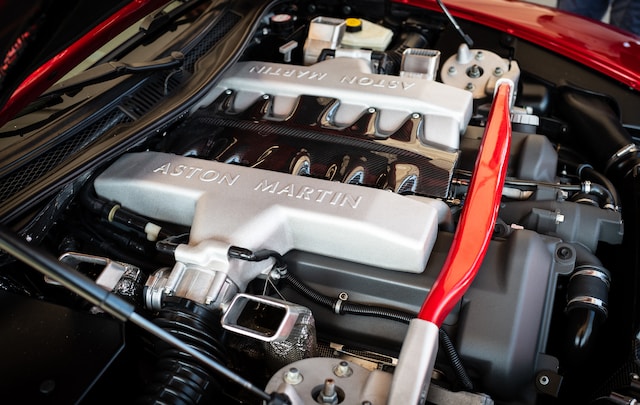
How to Fix Reduced Engine Power: A Comprehensive Guide
Reduced engine power is a common issue that many vehicle owners face at some point. This warning typically appears when your vehicle’s computer, or Engine Control Module (ECM), detects a problem that could harm the engine. Often, it’s accompanied by the Check Engine Light. If you’re experiencing reduced engine power, it’s crucial to address it promptly to ensure the longevity and efficiency of your vehicle. Below, we’ll explore common causes and solutions.
Understand the Causes
There are multiple reasons why your engine might be experiencing reduced power:
- Faulty Throttle Body: The throttle body controls the amount of air entering the engine. If it’s malfunctioning, it can lead to reduced power;
- Bad Sensors: Oxygen sensors, mass airflow sensors, and throttle position sensors can all contribute if they’re not working correctly;
- Faulty Fuel Injectors: These deliver gasoline to the engine. A malfunction can disrupt the fuel-to-air ratio;
- Clogged Fuel Filter: A dirty fuel filter can restrict the flow of gasoline;
- Emissions System Issues: Problems with the EGR valve or the catalytic converter can also cause power reductions.
Diagnose with an OBD-II Scanner
Before you can fix the issue, you need to diagnose it. An OBD-II (On-Board Diagnostics) scanner can help identify the specific fault codes causing the problem.
| Step | Description |
|---|---|
| Connect the Scanner | Plug the OBD-II scanner into the port, usually located under the dashboard. |
| Read the Codes | Turn on the vehicle and read the fault codes displayed on the scanner. |
| Interpret the Codes | Use the scanner’s manual or an online database to understand what the codes mean. |
Address Common Fixes
Depending on the diagnosis, here are some potential solutions:
- Replace Faulty Sensors: If your OBD-II scanner identified a bad sensor, replace it. Sensors are often easy to access and replace, but always refer to your vehicle’s manual;
- Clean or Replace the Throttle Body: If the throttle body is the issue, cleaning it might suffice. In more severe cases, replacement may be necessary;
- Change the Fuel Filter: If the filter is clogged, replace it to ensure proper fuel flow;
- Check Fuel Injectors: Clean or replace malfunctioning fuel injectors to restore the ideal fuel-to-air ratio;
- Inspect the Emissions System: If there’s a problem with the EGR valve or catalytic converter, professional intervention might be required.
Consult a Mechanic
In the complex world of automotive diagnostics and repairs, there may be moments of doubt or uncertainty regarding the exact nature of an engine problem. If you ever find yourself in such a situation, turning to the expertise of a trusted mechanic can be invaluable. A seasoned mechanic not only brings years of experience to the table but also has specialized tools and knowledge that can help pinpoint the underlying causes of reduced engine power. Their insights can save time, prevent costly mistakes, and provide peace of mind. By opting for a professional analysis, you ensure that any repairs are carried out correctly, safeguarding the performance and longevity of your vehicle. Always remember that it’s better to seek expert advice than to risk further complications down the road.
Regular Maintenance
To prevent reduced engine power and other vehicle issues:
- Schedule regular check-ups for your vehicle;
- Replace old parts as recommended by your vehicle’s manufacturer;
- Regularly clean essential components like the throttle body and air filters.
The foundation of a vehicle’s longevity and optimal performance lies in its regular maintenance. Preventing issues like reduced engine power, and a plethora of other potential vehicular concerns, often starts with proactive care.
First and foremost, scheduling consistent check-ups for your vehicle is paramount. Think of these like a regular health check-up; they can detect potential problems before they escalate, ensuring your car remains in prime condition. These check-ups often encompass a holistic examination, from brake inspections to fluid level assessments.
Additionally, over time, certain parts of your vehicle will wear out or become less efficient due to natural wear and tear. Adhering to replacement guidelines set by your vehicle’s manufacturer is crucial. By replacing aging components, you not only ensure that your vehicle operates efficiently, but also avoid potential issues that arise from malfunctioning parts.
Lastly, the cleanliness of your vehicle’s internal components can play a significant role in its performance. Essential parts like the throttle body and air filters, which play pivotal roles in the engine’s air-fuel mixture and overall respiratory function, can accumulate dirt and debris. Regularly cleaning these components ensures that they function at peak efficiency, facilitating smooth engine operations and preventing complications.
In essence, the key to a vehicle’s prolonged health and top-tier performance is consistent, comprehensive, and proactive maintenance.
Conclusion
Reduced engine power can be alarming, but with the right knowledge, it’s manageable. Regular vehicle maintenance, combined with prompt attention to issues, can keep your vehicle running smoothly. Always prioritize your vehicle’s health to enjoy an optimal driving experience.